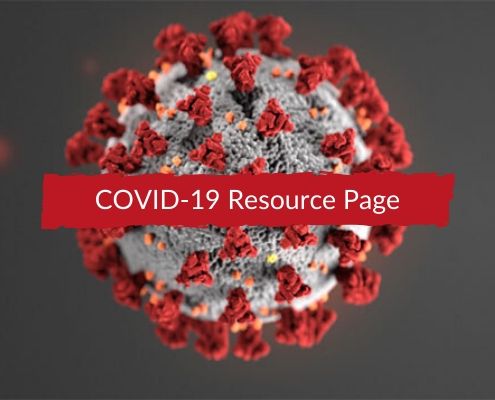Automobiles
Automobiles are an important part of many people’s lives, allowing for transportation to home, work, social activities and family engagements. Buying or leasing a new or used vehicle, or repairing your current vehicle, can be pricey. The tips below will assist you in protecting yourself and your wallet.

Buy, Sell, or Lease
Know your budget and be prepared: The kind of vehicle you can afford, and whether leasing or buying is the better option, will depend on your personal and financial situation. Before leasing or purchasing, review your income and expenses so you aware of how much money you have available to spend. Don’t buy a vehicle you can’t afford. In addition to the cost of the vehicle, which may or may not include a down payment, make sure to account for taxes, registration fees, and insurance costs, plus future maintenance costs such as oil changes, replacement tires, and repairs. If you are unable to pay for the vehicle in cash, there may be several financing options including through banks, credit unions, and often through the dealership. Shop around for the best interest rate and a loan term that fits your needs and your budget. Beware of lengthy loan terms that may outlast the life of the vehicle.
Before buying, research value of the vehicle of your choice. For new vehicles, MSRP is the Manufacturer’s Suggested Retail Price and is often the highest market price. You should negotiate with the dealer if they offer you this price. For new and used vehicles, you can check their value on websites such as Kelley Blue Book or TrueVehicle.com, among others. Do not be pressured into making a purchase or lease decision on the spot; take your time in making what can be a large financial decision. You should be prepared to walk out if the dealer/seller tries to raise the price or you feel uncomfortable with how negotiations are going.
If you decide to purchase a vehicle from a private party, do so in a safe environment. To decrease risk as much as possible for both parties, a suggestion is for the buyer and seller to meet at the buyer’s bank, and have the buyer write a check that is cashed at the bank in return for a cashier’s check made out to the seller. Following these steps helps to ensure the exchange is complete, and that it occurs at a public location that is safe for both parties.
Lease vs. Purchase: There are many factors to consider when deciding between leasing or buying a vehicle. The best choice for you will depend on not only your budget, but personal preferences as well. Below is a chart comparing common aspects of the two options; however, the specific details of your transaction may differ depending on the deal you make. Educate yourself before making a commitment.
| Lease | Purchase | |
| Ownership | You do not own the car, but you may choose to buy it once the lease term ends. | You own the car, until you decide to trade it in or re-sell it. |
| Initial Costs | Leasing a vehicle does not always require a down payment, but the monthly payment may be higher as a result. Good credit makes it easier to lease a car with zero down payment. Leasing a car also includes the registration fees (as part of the down payment). | Buying a car is possible without a down payment, but not recommended. The interest rate and monthly payment may be higher if you buy a car without making a down payment. |
| Incentives & Special Offers | Cash rebates, low interest rates | Cash rebates, 0% or other low interest rates, gift cards |
| Monthly Costs | In addition to your monthly payment, you will also have to pay monthly taxes and fees. Be sure to calculate an additional 15% additional in taxes each month. | The monthly payment when buying a car may be higher than if you lease because you are financing the total cost of the vehicle, rather than just the cost of the vehicle’s depreciation. |
| Insurance | Most states require buying insurance for a leased vehicle. For states that do not make it illegal to drive without insurance coverage, however, some proof of financial responsibility is still required. Insurance on a leased car may also cost more than if you buy the car. | Most states require buying insurance when buying a new car. For states that do not make it illegal to drive without insurance coverage, however, some proof of financial responsibility is still required. |
| Customizing | Leased vehicles have few, if any, options to personally customize. Any added customizations should be removed before the car is returned when the lease ends to avoid extra charges or filing an insurance claim to fix it. | If you buy a car you may customize the car to your liking, but customizing the car may affect your ability to re-sell if you want that option later. Before you customize, make sure the warranty on your car is not affected by doing so. |
| Mileage | There are mileage restrictions for leased vehicles. The most common restrictions are keeping the mileage below 12,000 or 15,000 per year. The number of miles allowed is negotiable. Additional charges apply If you exceed the maximum allowed miles per year. | There are no mileage restrictions if you buy a car. The resale value or trade-in value may decrease for a vehicle with high mileage, so attention to mileage is important. |
| Value | Consult the MSRP price. Most leased vehicles are new models. | Consult MSRP for a new vehicle or Kelley Blue Book for a used vehicle |
| Warranty | The vehicle is typically covered under the factory warranty during the lease term. | New vehicles are often covered under the factory warranty, but for a limited time period. Used vehicles may have some warranty protection, but this is less common and the scope of coverage may be very limited. |
| Wear and Tear | Leasing a vehicle is similar to renting. Excessive wear and tear and failure to maintain the condition of the car might result in extra charges. | Excessive wear and tear on a car that you have purchased will not result in extra charges, but it may decrease the resale or trade-in value later. |
| Early Termination | A lease is a contract, so getting out of a lease early can be costly. The dealer may choose to buy the car from the leasing company as a trade, which may enable you to end your lease early without any added costs. | Purchasing a car means you will not have to abide by any contract terms. You have the freedom to trade in or sell the car at any time. |
| End of Term | When your lease ends you may choose to buy the car you were leasing, buy a new car, or lease a new car. | Once the loan for your car is paid, you own the car and any equity in it. You can use that equity to buy your next car if you choose. |
New vs. Used Purchase
| New | Used | |
| Initial Costs | ||
| Incentives & Special Offers | Cash rebates, 0% or other low interest rates, gift cards | Usually less incentives, sometimes a lower sales price is the only incentive offered |
| Loans | Lower interest rates | Often, interest rates are higher on used vehicles than if you go with a new car |
| Insurance | Insurance costs are usually more for a new car. Model, color, and other factors will matter. | Insurance may cost less on a used vehicle than a new car, because it is worth less. |
| Safety | A new car will most likely have all of the latest safety features and technology. | Depending on the age of the used vehicle you may be interested in, a newer car will most likely cover more in terms of safety. |
| Value | MSRP | Kelly Blue Book |
Sale/Trade-in
Before selling or trading in a vehicle, you should research the value of the make and model, and consider the vehicle’s condition, such as wear and tear. When selling, this will help you to determine a fair price range to sell your vehicle within. When making a trade, it can help you to avoid a dealer/buyer who tries to give you a significantly lower amount for your trade-in than what you could potentially get elsewhere. You can check a vehicle’s value on websites such as Kelley Blue Book or TrueVehicle.com, among others.
When trading in a vehicle, check your local sales tax laws, as many locations tax only the difference between the trade-in value and the purchased vehicle price.
If you decide to sell the vehicle yourself, you are responsible for making it ready for sale, such as ensuring it passes inspection laws, if applicable. Make certain you receive the payment in a safe form, such as a cashier’s check, as personal checks can bounce. If accepting a payment in cash, make sure to do so in a safe environment. To decrease risk as much as possible, the buyer and seller may want to meet at the buyer’s bank during bank hours, and have the buyer write a check that is cashed at the bank in return for a cashier’s check made out to the seller. Following these steps helps to ensure the seller receives the funds at a public location that is safe for both parties.
Lemon Law
- A “lemon” vehicle is a vehicle that has one or more manufacturing defects affecting its safety, value or usefulness, which is purchased without the buyer’s knowledge of the defect.
- Lemon Laws vary from state to state, but they aim to protect people from defective vehicles. Some states lemon laws only apply to new or leased vehicles, or for a certain time period after purchase.
- Usually, the manufacturer must try to repair the defect first, but if they are unable to, or the car continues to have problems, then the buyer has a right to a refund, or a new vehicle.
- Owners should keep detailed records of repairs, including what was done and when, with copies of the repair bills, as owners typically have to prove they’ve purchased a “lemon” before the dealership will exchange the vehicle or offer a refund.
Dealers
- Look for dealership incentives tailored to you, such as discounts for students or military members.
- You should contact several dealers online, by phone, or in person to find out the lowest price they will sell a vehicle for. Get this quote in writing, so you can use the lowest price offered to see if one dealer will beat another dealer’s lowest price in order to make a sale.
- If you believe the dealer committed fraud when selling you a vehicle, file a complaint with your state’s attorney general’s office.
Right to Cancel
- Although there is a right to cancel contracts under Federal law, that does not apply to vehicle purchases, so check your state to see if they have a law about canceling your purchase.
Auto Repair
- If a defect is discovered, the manufacturer must notify the National Highway Traffic Safety Administration. Manufacturers usually send notice to dealerships when they discover a defect in a car. The dealership must then notify those affected that the repair should be at no cost to the owners. The manufacturers don’t always send out notices, so you can check websites like Center for Auto Safety and Safercar.gov to see if there is a defect for your vehicle.
- If your vehicle has an extended warranty, repairs can be made at any authorized dealership, usually at no cost to you unless there is a deductible included in the warranty.
- If the vehicle has a warranty, the warranty must state what repairs the dealer will pay for and what you are responsible for.
- If the vehicle is sold “As Is” the dealer will not pay for any repairs, so repairs will be the responsibility of the purchaser.
Extended Warranties
- An extended warranty is an extension of the coverage period on a standard warranty. You may be given the option to buy an extended warranty when you buy the car or when the regular warranty is expiring.
- Purchasing an extended warranty from the manufacturer typically allows you to have repairs done at any authorized dealership without charge, unless the extended warranty has a deductible.
- You may be able to purchase an extended warranty from an independent company for less than what the manufacturer offers, but keep in mind that it may not cover as many repairs as a manufacturer’s warranty.
Warranty Scams
- Be wary of calls or letters that state your extended warranty has expired or is about to expire, and that the offer to extend the warranty is only good for a short period of time. If they pressure you to make a purchase right away, it’s most likely a warranty scam.
- If you receive a call or letter about extending your warranty, don’t call the number provided. You should first check with your manufacturer or dealer to see if your warranty is about to expire or has expired, and if it is, ask them about purchasing a new warranty.
Odometer Fraud
- Odometer fraud happens when someone alters the mileage on a vehicle to make it appear to have a lower total mileage than it really does. This is a felony offense in the United States.
- You can check for odometer fraud when buying a car by comparing its mileage with its vehicle maintenance records, inspection records, or oil change sticker.
- If you suspect odometer fraud by a dealership, you should report it to the National Highway Traffic Safety Administration Office of Odometer Fraud. If you suspect odometer fraud by an individual, contact your state’s enforcement agency, such as the police or your state’s attorney general. You should also consult an attorney to determine what legal rights you have in your state if someone has tampered with your car’s odometer.
Salvage Title
- A vehicle receives a salvage title when it has significant damage and repairs would cost close to, or more than what the vehicle is actually worth. Sometimes the vehicle is sold by the insurance company and then repaired. Other times it is sold to a junk yard for parts, or sold at auction and the buyer can choose to repair it themselves.
- A salvage titled vehicle may be a good purchase if the damage was not essential to its performance, such as cosmetic damage to the body of the car, rather than any damage to the engine.
- Usually the title will note that it is a salvage vehicle, but you can check the vehicle history report of your car online to see what types of accidents it has been in.
- Dealerships often won’t buy a car that has a salvage title as a trade in.
- However, buying a salvage title vehicle can be a good way to save money if it is inspected by your own mechanic and the mechanic determines it is a reliable vehicle.
- Financing is often more difficult for a salvaged vehicle with higher interest rates. Some lenders will not finance a car with a salvage title at all because of the possibility of future issues with the car.
- Also, some insurance companies won’t insure a car with a salvage title and those that will insure them often charge higher premiums.
Disclosures
- If the vehicle has any type of warranty, the warranty must state what repairs the dealer will pay for and what you will have to pay for.
- All states, except Maine and Wisconsin (which have similar regulations) must post a buyer’s guide in all vehicles they sell. This guide describes questions buyers should ask, including major problems buyers should look out for, whether the car has a warranty or not and how much they will have to pay for repairs if there is a warranty. The guide also advises buyers to get all promises the dealer makes in writing, to have the car inspected by your own mechanic before purchasing it and to get a vehicle history report, among other things.
- All dealers must comply with the federal warranty disclosure rule which requires them to list all of the parts that are covered under the warranty, when the warranty will no longer cover those parts, how to use the warranty to make repairs, any limitations on the warranty, and what the dealer will pay for if the car needs repairing.
- In most states, it must be disclosed if the vehicle has a salvage title, if it was damaged in a flood, or if it was rebuilt.
Title Information
- A vehicle history report details things such as how many owners it has had, liens, vehicle maintenance, title issues, and accident history. The dealer should provide you with a vehicle history report, but you can also receive a basic vehicle history report from many companies by looking up the Vehicle Identification Number (VIN) or paying for a more extensive report.
- The National Motor Vehicle Title Information System provides information about the car’s condition and history from sources such as state motor vehicle agencies and insurance carriers.
- Some states don’t require vehicle titles to state if they have had flood or other damage. Some people will take these vehicles to these states and “wash” their title, which could cause a buyer to unknowingly buy a car that has been damaged. To avoid this, you can check the National Motor Vehicle Title Information System or obtain a Carfax history report to see if it has any prior damage in another state.
Recall Information
- A recall is issued when a manufacturer or the National Highway Traffic Safety Administration determines that a vehicle or part creates an unreasonable safety risk or fails to meet minimum safety standards.
- When a manufacturer issues a recall, it must state the safety hazards the defect presents, where to get it repaired or replaced, how long it will take to repair, that it will be at no cost to you, and to contact them if there is a problem obtaining the repair for free. They may also offer to replace the vehicle or issue a refund if it is a defect that cannot be repaired.
- If you receive notice about a recall for your vehicle or a part in your vehicle, you should get it repaired right away.
- If you do not receive a notice but believe your car may be involved in a recall, you can contact the manufacturer or visit the National Highway Traffic Safety Administration to check.
Renting a Vehicle
- Some rental companies do not allow anyone under the age of 21 to rent a vehicle, and it is usually more expensive to rent a car if you are under 25 years old.
- There is usually a fee if you add additional authorized drivers to the rental agreement.
- Many car rental companies require you to return the car with a full tank of gas, or pay to refill it at the rental facility. It is usually more expensive to have it refilled at the rental company, so find a gas station near the rental company to fill up the tank and save money.
- Some credit card companies or your insurance will cover rental car insurance, so check before purchasing the insurance offered by the rental company. If you don’t check, you could be purchasing insurance that you do not need.
- Compare prices of rental companies that are away from the airport with those that are at the airport. It may save you money to take public transportation or a taxi to a rental company that is away from the airport.
- Check with reward programs you may be in, like from your credit card company, or your insurance company to see if they have possible discounts.
- Make sure you do a thorough inspection of the car for damage before renting it, and make sure the company writes down any damage you notice to avoid claims when you return the vehicle that the damage was done by you
- Most U.S. companies do not allow you to cross international borders, and most insurance companies do not cover insurance for international rental vehicles.
Repossession
- Repossession occurs when you default on your car loan. The lender will re-take possession of the car, which can happen without a court order.
- You can try to negotiate with your lender for a new payment schedule to avoid repossession. Some states allow you to take your vehicle back after you have paid off what you owe or after paying the full amount owed and any expenses from repossession.
- If your car is repossessed, you have the right to have all personal items that were inside the vehicle returned to you undamaged.
- If your vehicle is sold, ask if you still owe anything. Even when the car is sold, there may still be debt if the vehicle was sold for less than what you owed.
- Repossession will stay on your credit for up to seven years, so stay current on other bills to rebuild your credit after repossession.








